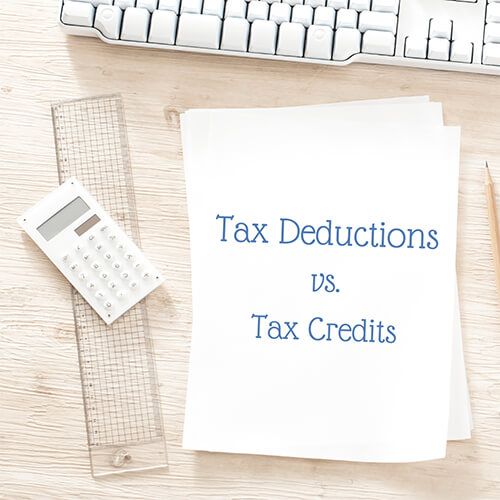Tax Deductions vs. Tax Credits
What is the difference between tax deductions and tax credits?
TAX DEDUCTIONS reduce your taxable income. The value of the deduction depends on your marginal tax rate.
For example, a $5,000 federal tax deduction for an individual with $125,000 taxable income is worth $1,300 (5,000 x 26% applicable marginal rate). Common examples are RRSPs and childcare.
TAX CREDITS reduce the amount of tax owing. The value of the tax credit is based on a certain rate (usually the lowest tax bracket).
For example, a $5,000 federal tax credit at 15% is worth $750 (5,000 x 15%), regardless of taxable income. Common examples are personal, spousal, age, EI and CPP premiums.
Some credits are non-refundable and some are refundable:
- Non-refundable credits – can only be claimed if the tax owing is greater than the amount of the credits
- Refundable credits – can be received regardless of tax owing
Note: There are other credits that are calculated differently, such as donations, dividends, and foreign tax credits.
